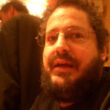Making money: a novel of Discworld
Description
The Ankh-Morpork Post Office is running like . . . well, not at all like a government office. The mail is delivered promptly; meetings start and end on time; five out of six letters relegated to the Blind Letter Office ultimately wend their way to the correct addresses. Postmaster General Moist von Lipwig, former arch-swindler and confidence man, has exceeded all expectations—including his own. So it's somewhat disconcerting when Lord Vetinari summons Moist to the palace and asks, "Tell me, Mr. Lipwig, would you like to make some real money?"
Vetinari isn't talking about wages, of course. He's referring, rather, to the Royal Mint of Ankh-Morpork, a venerable institution that haas run for centuries on the hereditary employment of the Men of the Sheds and their loyal outworkers, who do make money in their spare time. Unfortunately, it costs more than a penny to make a penny, so the whole process seems somewhat counterintuitive.
Next door, at the Royal Bank, the Glooper, an "analogy machine," has scientifically established that one never has quite as much money at the end of the week as one thinks one should, and the bank's chairman, one elderly Topsy (née Turvy) Lavish, keeps two loaded crossbows at her desk. Oh, and the chief clerk is probably a vampire.
But before Moist has time to fully consider Vetinari's question, fate answers it for him. Now he's not only making money, but enemies too; he's got to spring a prisoner from jail, break into his own bank vault, stop the new manager from licking his face, and, above all, find out where all the gold has gone—otherwise, his life in banking, while very exciting, is going to be really, really short. . . .
More Details
9780061161643
9780061795893
9780061554452
Excerpt
Similar Series From Novelist
Similar Titles From NoveList
Similar Authors From NoveList
Published Reviews
Booklist Review
Moist von Lipwig, the savior of the Ankh-Morpork post office, has gotten settled into a routine. He's filling out forms, signing things, will probably get to be head of the Merchants Association next year, and he hasn't designed a stamp in months. He's so bored, in fact, that he's taken to climbing the walls of the post office and breaking into his own office. Lord Vetinari, always brilliant in his ruthlessness, recognizes an opportunity when he sees one, and offers Moist the job of running the royal mint. Moist tries to refuse, pretending that he's satisfied with the stable life, but he can't deny the urge for adventure and intrigue for long. The mint is, in the finest Ankh-Morpork tradition, a strange and oddly old-fashioned place, with bizarre traditions so ingrained the long-term employees can't imagine doing them any other way. Moist is the perfect innovator, with his wildly creative solutions to problems, for changing the way the entire city thinks about money. In the transition from the gold standard and old money, Pratchett brings up all the details that make Ankh-Morpork one of the most satisfying contemporary fantasy cities and continues in his trend of beautifully crafted, wickedly cutting satire on the underpinnings of modern human society. Making Money is smart, funny, and a thoroughly entertaining read.--Schroeder, Regina Copyright 2007 Booklist
Publisher's Weekly Review
Reprieved confidence trickster Moist von Lipwig, who reorganized the Ankh-Morpork Post Office in 2004's Going Postal, turns his attention to the Royal Mint in this splendid Discworld adventure. It seems that the aristocratic families who run the mint are running it into the ground, and benevolent despot Lord Vetinari thinks Moist can do better. Despite his fondness for money, Moist doesn't want the job, but since he has recently become the guardian of the mint's majority shareholder (an elderly terrier) and snubbing Vetinari's offer would activate an Assassins Guild contract, he reluctantly accepts. Pratchett throws in a mad scientist with a working economic model, disappearing gold reserves and an army of golems, once more using the Disc as an educational and entertaining mirror of human squabbles and flaws (Oct.) (c) Copyright PWxyz, LLC. All rights reserved
Library Journal Review
Discworld continues with ex-swindler Moist von Lipwig in charge of printing Ankh-Morpork's first paper currency. Watch out! (c) Copyright 2010. Library Journals LLC, a wholly owned subsidiary of Media Source, Inc. No redistribution permitted.
Kirkus Book Review
Now that he's helped whip the post office into shape, what's a reformed criminal to do? Fans of Pratchett's Discworld series were handed a real treat a few years back in Going Postal, in which the author introduced Moist von Lipwig, an inveterate grifter who is almost hung before being picked by Vetinari, boss of the city of Ankh-Morpork, to reform the decrepit mail system, with hilarious and very satisfying results. In this sequel, we find Lipwig at the height of respectable success and bored out of his mind--not surprising given that Lipwig is what brainy types would call a "change agent," and others just a plain old thief. So it makes sense that Vetinari picks him for yet another impossible assignment, to help overhaul the city's financial system (the city is switching from gold to paper currency). After much spluttering about how he's more used to breaking into banks than working in them, Lipwig gets down to tearing up old traditions and forging new ones, creating new enemies with almost every passing page. Just as Going Postal somehow made the streamlining of mail delivery in a quasi-medieval fantasy world utterly riveting, so too here Pratchett (Wintersmith, 2006, etc.) creates fine entertainment out of the machinations of a dismal science. The book takes up too much time with tedious subplots and villains possibly necessary for the courtroom conclusion, but Lipwig is a brilliant scalawag of a hero, and Pratchett's taste for dry one-liners remains prodigious. Far from Pratchett's best, but entertaining nonetheless. Copyright ©Kirkus Reviews, used with permission.
Booklist Reviews
Moist von Lipwig, the savior of the Ankh-Morpork post office, has gotten settled into a routine. He's filling out forms, signing things, will probably get to be head of the Merchants Association next year, and he hasn't designed a stamp in months. He's so bored, in fact, that he's taken to climbing the walls of the post office and breaking into his own office. Lord Vetinari, always brilliant in his ruthlessness, recognizes an opportunity when he sees one, and offers Moist the job of running the royal mint. Moist tries to refuse, pretending that he's satisfied with the stable life, but he can't deny the urge for adventure and intrigue for long. The mint is, in the finest Ankh-Morpork tradition, a strange and oddly old-fashioned place, with bizarre traditions so ingrained the long-term employees can't imagine doing them any other way. Moist is the perfect innovator, with his wildly creative solutions to problems, for changing the way the entire city thinks about money. In the transition from the gold standard and old money, Pratchett brings up all the details that make Ankh-Morpork one of the most satisfying contemporary fantasy cities and continues in his trend of beautifully crafted, wickedly cutting satire on the underpinnings of modern human society. Making Money is smart, funny, and a thoroughly entertaining read. Copyright 2007 Booklist Reviews.
Library Journal Reviews
Discworld continues with ex-swindler Moist von Lipwig in charge of printing Ankh-Morpork's first paper currency. Watch out! Copyright 2007 Reed Business Information.
Library Journal Reviews
After more than two dozen Discworld outings, Pratchett is finally writing in chapters! And what lovely chapters they are, fully reminiscent of those from a Victorian novel, with headings presaging the events following and illustrations at the beginning of each. Apart from this stylistic change, the book continues the laugh-out-loud Discworld series, reprising characters from the earlier Going Postal with cameos from some of the Ankh-Morpork regulars. The plot? Ankh-Morpork is moving away from gold (or "goldish") currency into the brave new world of paper money. Moist von Lipwig, Postmaster General, is serving as Master of the Mint, second only in command to the canine Mr. Fusspot, chairman of the Royal Bank. Meanwhile, Lord Vetinari is being "single white femaled" by a man with more money than sense, and Lipwig's main squeeze, Miss Dearheart, is not content to let sleeping golems lie. Highly enjoyable, fast-paced, and funny; recommended for all fiction and sf collections. [See Prepub Alert, LJ 6/15/07.]—Amy Watts, Univ. of Georgia Lib., Athens
[Page 60]. Copyright 2007 Reed Business Information.Publishers Weekly Reviews
Reprieved confidence trickster Moist von Lipwig, who reorganized the Ankh-Morpork Post Office in 2004's Going Postal , turns his attention to the Royal Mint in this splendid Discworld adventure. It seems that the aristocratic families who run the mint are running it into the ground, and benevolent despot Lord Vetinari thinks Moist can do better. Despite his fondness for money, Moist doesn't want the job, but since he has recently become the guardian of the mint's majority shareholder (an elderly terrier) and snubbing Vetinari's offer would activate an Assassins Guild contract, he reluctantly accepts. Pratchett throws in a mad scientist with a working economic model, disappearing gold reserves and an army of golems, once more using the Disc as an educational and entertaining mirror of human squabbles and flaws (Oct.)
[Page 43]. Copyright 2007 Reed Business Information.








































































